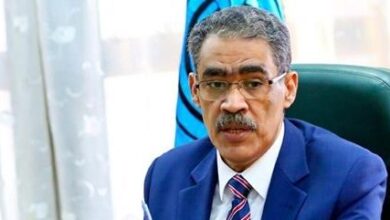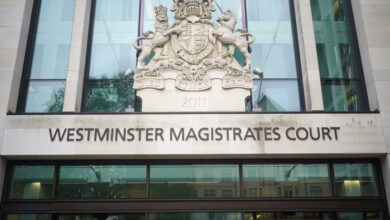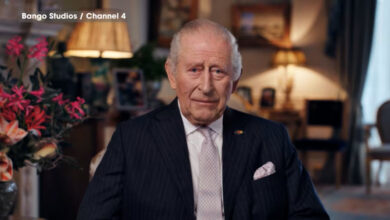
The British government faced questions about transparency in regard to nearly £ 2 million in aid to Egypt, that was directed towards security projects for the country, including support for policing, the criminal justice system and the treatment of juvenile detainees, the Guardian newspaper reported on Friday.
According to the newspaper, an investigation was conducted within the British Parliament on an aid fund called the the Conflict, Stability and Security Fund (CSSF) and that was described by members of the parliament as “secret”. The value of the fund stood at £1.1 billion, allocated by the British government to strengthen security objectives in several countries in the world.
Members of parliament said the secrecy of the fund prevent the parliament from scrutinizing it and providing taxpayers with information about how the cash in the fund was spent.
According to the Guardian, a parliamentary inquiry earlier this year described the objectives of the financial aid granted to the Egyptian authorities through the CSSF as “opaque”.
The parliament obtained documents, under the Freedom of Information Act, that revealed the cash was granted to Egyptian authorities.
“Human rights group, Reprieve, said it was concerned that £650,000 of the £1.85m security funding, granted through the CSSF in 2015-16, appeared to involve direct engagement with the Egyptian police and criminal justice system, including programs relating to juvenile detainees,” the Guardian said.
Reprieve requested further details from the Foreign and Commonwealth Office (FCO), but the request was refused on the grounds that it was not in the public interest.
The Guardian quoted Reprieve’s director, Maya Foa, as saying that the FCO’s lack of transparency was “deeply disturbing,” adding, “Ministers are well aware of rights abuses by Egyptian courts and prisons, including those against juveniles.”
Foa went on to say that, “Transparency in the use of taxpayer money is crucial where there is a risk that the UK could be contributing to abuses as serious as torture and illegal executions. The Foreign Office should urgently explain what these projects involve”.
The FCO justified its position by saying that, “Providing further detail about the projects could jeopardise the trust and confidence in [the UK government] by the Egyptian government and therefore [the UK government’s] ability to both protect and promote UK interests in the future.”
According to the report, this raises broader concerns about the UK’s £13 billion aid budget, 36 percent of which is spent by ministries other than the Department for International Development (DFID).
The shadow international development secretary, Kate Osamor, called on all British government departments to publish aid data.
“This alarming case raises yet more urgent questions about how the National Security Council is deploying the CSSF to spend aid money that should be earmarked to help the world’s poorest,” he said.
“The UK is committed to working with Egypt to support political and economic reform, and we encourage the Egyptian government to deliver on its international and domestic human rights commitments. But it is not good enough to merely criticise other countries from the sidelines. We have to work with Egypt to encourage change. All projects carried out by the UK government comply with the UK’s domestic and international human rights obligations,” the Guardian quoted a spokesman for the FCO as saying.
Edited Translation from Al-Masry Al-Youm




